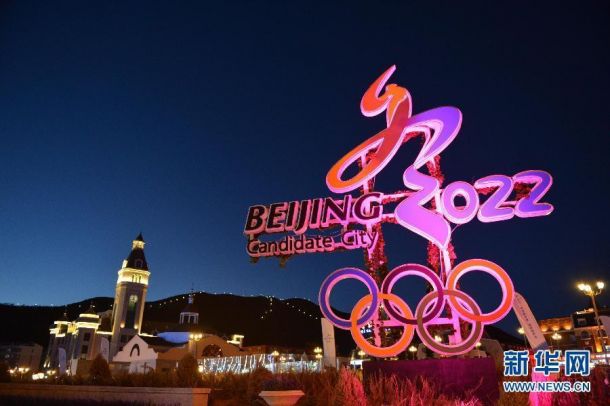The International Olympic Committee has awarded the 2022 Winter Olympics to Beijing, China. Beijing was chosen 44-40 over its only opponent, Almaty of Kazakhstan, in the voting. Beijing will become the first city to have hosted both Summer and Winter Olympics, after hosting the Summer Games in 2008. These will also be the third consecutive Olympics in East Asia after the 2018 Winter Games in Pyeongchang, South Korea and the 2020 Summer Games in Tokyo, Japan.
Beijing was the favorite to get the Games, even though many people found Almaty's bid actually better. Almaty would have had a lot more compact venue plan and they would also have had more existing venues than Beijing. Besides, Almaty would have had great snow conditions whereas artificial snow will be needed at the ski sports venues of the Beijing Winter Olympics.
But, why did the IOC choose Beijing instead of Almaty? A reason is that China has a lot more experience on hosting major sports events. China put lots of money into the 2008 Beijing Summer Olympics and you can be sure they are willing to invest a lot into these Winter Olympics. China as the most populous country has attracted many sports and their sponsors to try to expand into China. That may have attracted the IOC.
The Beijing Winter Olympics will be centered in the Olympic Green from the 2008 Summer Olympics. The Olympic Stadium of 2008 will be used for the opening and closing ceremonies. Two indoor arenas in the Olympic Green Area will be used for ice hockey and curling. Besides those, the international broadcasting center and the main press center already exist there. A speed skating venue and the Olympic Village will have to be built in the Olympic Green.
Besides the Olympic Green cluster, the Beijing City Zone will have two stand-alone venues, one for ice hockey and the other for figure skating and short track skating. Both of those venues exist already and are within 20 kilometers of the Beijing Olympic Village.
The outdoor sports will be contested in two mountain zones. The alpine skiing and sliding venues will be built in the Yanqing Zone, approximately 90 kilometers north of the Beijing Olympic Green. The other mountain zone, the Zhangjiakou Zone will be approximately 160 kilometers north of the Beijing Olympic Green. It will have two clusters. The Nordic Centre Precinct will have new venues for biathlon, cross-country skiing, and biathlon. The Genting Park Precinct will host freestyle skiing and snowboarding in existing venues. Both mountain zones will have separate Olympic Villages and temporary media centers.
Long distances aren't the mountain zones' only problems. Because of minimal snowfall in those regions, the games will rely on artificial snow. The snow conditions may be even more difficult a couple of weeks later in March during the Paralympics. Also, 1,500 people will have to be relocated from where the ski jumping venue and the Olympic Village will be built in the Yanqing Zone, though the IOC's Evaluation Commission were assured that the vast majority of the residents were satisfied with their relocation options.
Beijing's plan with long distances and difficult snow conditions doesn't seem perfect for Winter Olympics. But now one can only hope the IOC's faith in the Chinese pays off and they can overcome the difficulties, successfully hosting the Games.









































